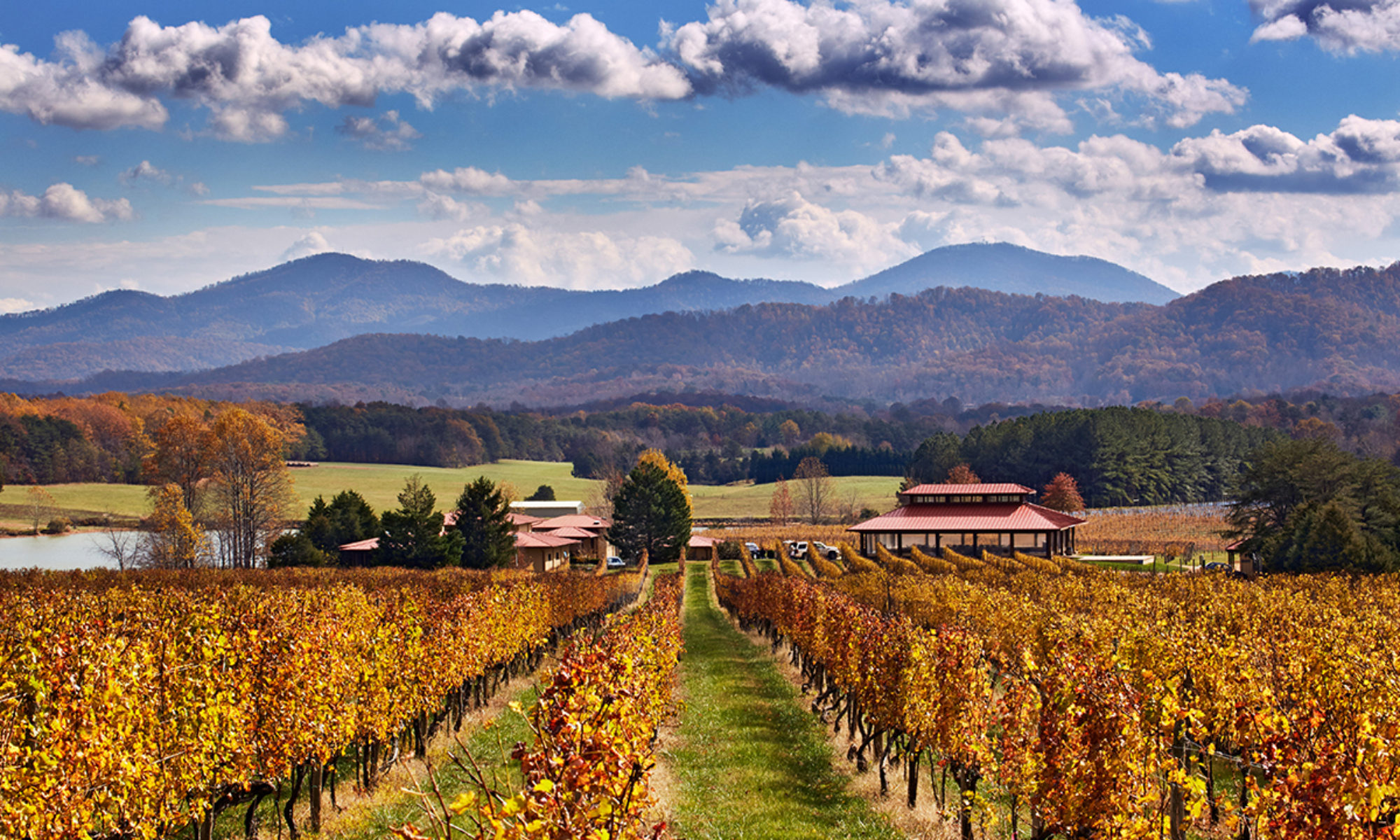This very small winery is located in Powhatan, 35-40 minutes West of Richmond. Clyde Bodie, of French Huguenot refugee descent, opened his winery in 2008, but has been making wine from his vineyard for home consumption and friends since 1972.
Wine. Tier III. There are currently only two wines, both made from French-American hybrid grapes: a Michaux Blanc (100% Cayuga) and a Rochette Rouge (100% Buffalo). Both are dry styles, and offer an opportunity to try something different than what you’ll find in other Virginia wineries. The acre of grapes results in around 200 cases annually. Bodie recently planted another Franco-Canadian grape, Marechal Foche, as an additional varietal.
Setting. Small winery and tasting room, open Saturdays and by reservation. Facilities include an outdoor pavilion and picnic tables, and you’re welcome to bring your own picnic. No credit cards here; bring cash or check. Bodie brings in volunteers for picking the grapes, and sponsors a Fall Harvest festival to thank them.
Stories. French Huguenot Refugees in Virginia. Clyde Bodie is a 7th generation descendent of Huguenots, who fled religious persecution in their native France. From the mid-16th through the early 19th centuries, wars over religion wreaked havoc in many parts of Europe. In France, a wave of emigration of Protestants occurred in the 1560s and 1570s, especially after the St Bartholomew’s Day Massacre of 1572. Peace between Catholics and Protestants was temporarily restored under King Henri IV, who issued the Edict of Nantes in 1598, proclaiming religious toleration. After Henri’s IV’s assassination, conflict renewed, and in 1685, the increasingly absolutist Louis XIV revoked the Edict, triggering a new wave of refugees looking for Protestant safe havens. Many went to either Frankfurt or Mannheim in western Germany, or to Amsterdam and London. The late 1600s was also a time that both Virginia and North Carolina colonies were seeking to recruit more settlers, to help occupy and defend frontier lands in the colonies, and Huguenots in England became a recruitment target. In 1699 King William III granted 10,000 acres of land in Virginia to the Marquis Olivier de la Muce to bring settlers, and the aristocrat brought four ships with 500 Huguenot refugees to Virginia that Summer. When they reached Virginia, Lieutenant Governor Francis Nicholson directed them to settle above the Fall Line at the former Monacan town of Mowhemencho, as a potential buffer between existing settlements and threatening Native Americans. The arriving Huguenots expected to settle near the coast, where they could manufacture cloth and other trading goods, but instead wound up being forced to earn a living as farmers. The Huguenots formed three villages, Manakin and Sabot north of the James River, and the larger Manakin Town south of the James. Some later arriving Huguenots joined them shortly, including Clyde Bodie’s ancestor Abraham Michaux. Abraham Michaux was born in Sedan, in the Ardennes of eastern France, in 1676. His family fled to Amsterdam around the time of the Revocation of the Edict of Nantes, where he married Susanne Rochet, also from Sedan. They came to Virginia in 1705, and joined the Huguenot refugee settlement at Manakin Town. Abraham received an unusually large 500-acre land grant adjacent to Manakin Town, and died there in 1717; his headstone is in the small local cemetery, and a copy of his will is still in existence. By 1750 Manakin Town was defunct, the settlers having moved to farms or elsewhere. The refugee’s presence is remembered today in the Huguenot Trail, which runs south of the James and 3-4 miles north of Bodie Vineyards, and the nearby Huguenot Bridge over the James.
